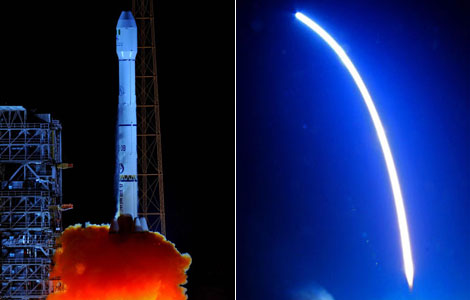Oil leak company at odds with environmentalist
Updated: 2011-12-20 09:36
By Wang Qian and Zhou Yan (China Daily)
|
|||||||||||
BEIJING - ConocoPhillips China said on Monday that its research and analysis so far show the oil spills in Bohai Bay have caused "minimal lasting impact to the environment".
Not all agree with that assessment, however.
The company said earlier that a third-party shoreline assessment showed that only two of 80 sample locations were similar to the oil from the Penglai 19-3 oilfield. And it has spent more than $200 million doing cleanup work after the oil spill.
The State Oceanic Administration (SOA) said in a statement on Nov 11 the spill had polluted 6,200 square kilometers of Bohai Bay - an area about nine times the size of Singapore.
Although China National Offshore Oil Corporation said the leak had been sealed earlier, the daily report from the SOA showed a small amount of oil was still found near Platform C - about 80 milliliters on Sunday.
McLemore John, ConocoPhillips spokesman, explained that the tiny droplets were trapped in the subsea sediment and eventually floated to the surface, which does not mean that the leak is continuing.
The spills started on June 4 in the Penglai 19-3 oilfield and resulted in the release of about 115 cubic meters of oil and 416 cubic meters of mineral-oil-based drilling mud, according to ConocoPhillips.
Ma Jun, director of the Institute of Public and Environmental Affairs, said ConocoPhillips' statement is greatly different from the facts that a large area of Bohai water is polluted by the leak and some oil reached the coastal areas. "People can see with their own eyes and the pollution to the sea is undeniable," Ma added.
Zhao Jingwei, a lawyer representing 107 Hebei province fishermen in a lawsuit against ConocoPhillips China for compensation of 490 million yuan ($77 million), said the ConocoPhillips statement is not trustworthy, because according to sample testing from the Ministry of Agriculture in July and August, drops of oil in the coastal areas in Liaoning, Hebei and Tianjin were the same as oil from the leak.
After the incident, large amounts of scallops and sea cucumbers were found dead or stopped growing in the nearby cultivation areas, he said.
In mid-September, ConocoPhillips China announced a plan to establish two funds for damage caused by the spill, and McLemore John said the company has been talking to several organizations in China about how to set up and operate the funds.
But when the funds will be established is still unknown.
Hot Topics
HIV/AIDS, Egypt protest, Thanksgiving, climate change, global economic recovery, home prices, high-speed railways, school bus safety, Libya situation, Weekly photos
Editor's Picks

|

|

|

|

|

|







